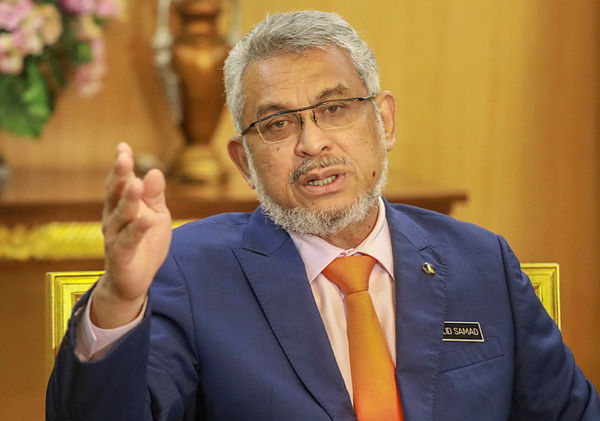KUALA LUMPUR: The government must be extra careful when dealing with issues involving the Malays to avoid giving them an excuse to stage a coup d’etat, according to Federal Territories Minister Khalid Abdul Samad (pix).
He pointed out that such a possibility could not be dismissed because the Malays, who now made up 70% of the population, could be influenced by a purported “deep state” into turning their back on the current administration.
“Nothing is impossible if they are persuaded to believe that the position of the Malays is under threat,” he told reporters at the Parliament lobby today.
Khalid also pointed out that institutions such as the police and the military were also “fundamentally Malay-based”, making it even more important to handle these issues with care.
He was commenting on a statement by Foreign Minister Datuk Saifuddin Abdullah that the Cabinet could not ratify the Rome Statute of the International Criminal Court for fear of a coup attempt spurred by a “deep state”.
A “deep state” refers to a state within a state that has a secret government made up of covert networks of power operating independently of the political leadership for its own ends.
Khalid cited a similar situation in Egypt in 2013 when the government, led by Mohamed Morsi, was overthrown by the military. “This happened despite the fact that the Egyptians did not have to deal with racial diversity like we do in Malaysia,” he said.
He claimed that the deep state was capitalising on the sense of insecurity and uncertainty that came with the emergence of a new government in Malaysia following a democratic election.
“Egypt should have been less susceptible (to a coup) but even then, it happened. So (with our racial diversity) we must be careful,” he added.
Without going into specifics, Khalid said the government had to pick its priorities and this led to the decision to withdraw from the Rome Statute. “The government already has many issues to deal with. Among them are the (financial mismanagement) in Tabung Haji and Felda,” he said.
“If we want to handle everything at one go, obviously we will be at a very great disadvantage. So, rather than adding it (Rome Statute) on our list, we want to handle the other issues on the table first,” he added.
“(If we go ahead and ratify the treaty), we won’t be able to clarify and give confidence to the public as to the correct explanation on the Rome Statute,” he added.













